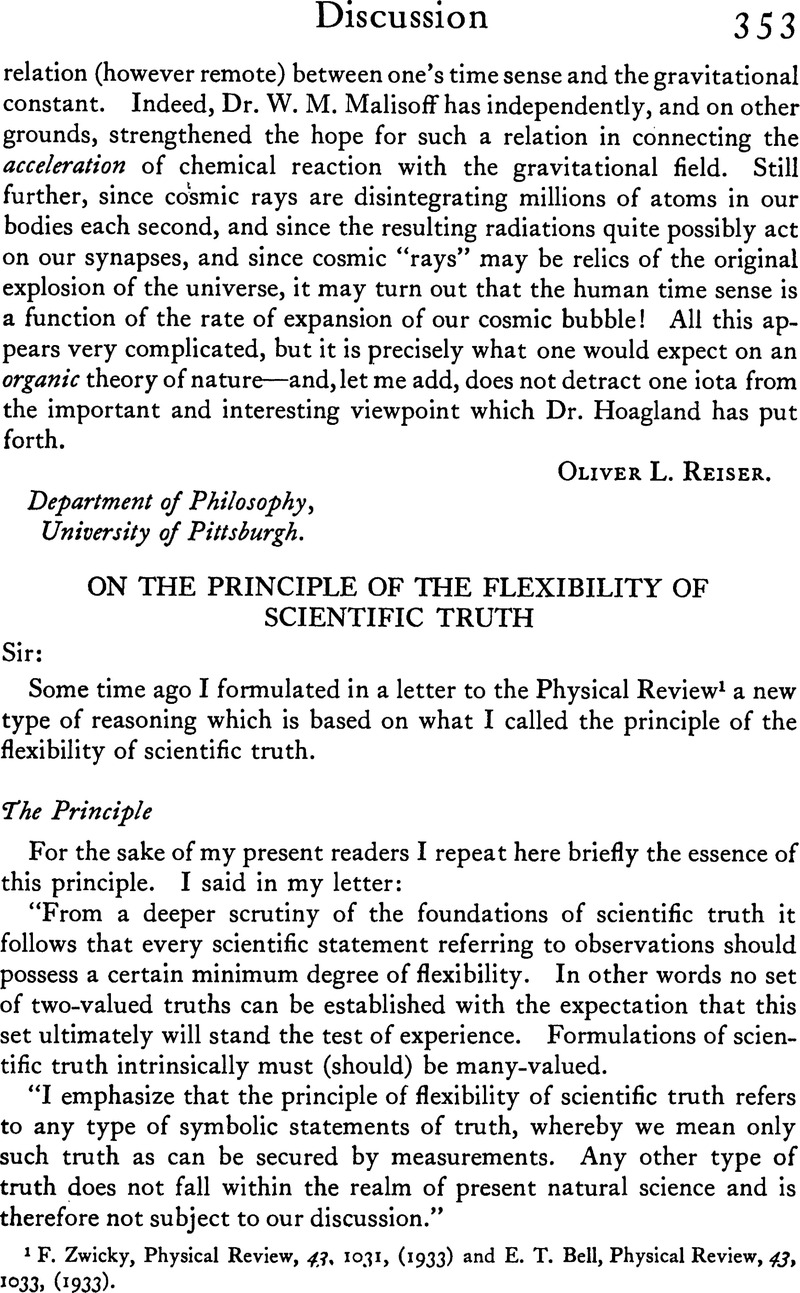Article contents
On the Principle of the Flexibility of Scientific Truth
Published online by Cambridge University Press: 14 March 2022
Abstract

- Type
- Other
- Information
- Copyright
- Copyright © The Philosophy of Science Association 1934
References
1. F. Zwicky, Physical Review, 43, 1031, (1933) and E. T. Bell, Physical Review, 43, 1033, (1933).
2. A. Einstein, Philosophy of Science, Vol. 1, No. 2 (1934).
3. Perhaps one might argue that the beliefs in simplicity and absoluteness are related to a fundamental desire of certain men for beauty. This desire has not always found its realization in the ordinary ways of life, and man by wishful thinking endows at least science with simplicity and beauty. Although I take the stand that orthodox and absolute formulations of truth are ultimately inadequate for a comprehension of all being (German “sein”), I am of course fully aware of the fact that the belief in absoluteness was and still will be extremely fruitful and perhaps necessary in man's approach toward a comprehension of all being.
4. H. Margenau, Philosophy of Science, Vol. 1, No. 1 (1934).
- 5
- Cited by




